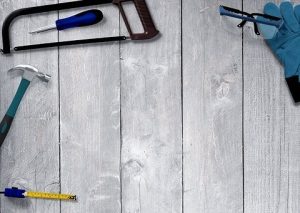While planning for retirement, many seniors will decide to age in place and want to stay in their homes as long as possible. By aging in place, it allows seniors to remain in a safe and familiar residence while staying close to family and friends.
To age in place comfortably, most seniors will need a few modifications made to their homes. Below are some recommended areas that will increase accessibility and allow aging in place with their home properly equipped as they grow older.
Have an Accessible Floorplan
A large part of an accessible floorplan is having the laundry, kitchen, bedroom, bathroom, and entry of the home on the same level to make it easier for someone in a wheelchair or using a walker to get around. If the bedroom is not on the same level, a living room, or other spare room can be renovated into one. With the ability to live entirely on one floor, it allows seniors to continue to live in their homes even if their mobility is limited.
Another recommended safety feature is to have handrails on all stairs, as well as in the bathroom shower. An alternative option is to have a walk-in tub or shower installed and have non-slip mats on slippery surfaces.
Have a Low Maintenance Exterior
The exterior of the home should be low maintenance to limit the need for seniors to maintain it themselves. Vinyl siding is a great option to avoid the hassle of having to repaint the outside of the home. Gutter guards can prevent debris from getting inside and clogging gutters. Landscape choices should include reducing the need for mowing or weeding, installing automatic outdoor lighting, and an entry ramp can allow for trouble-free home access via wheelchair or walker.
Install Lever-Style Doorknobs and Fixtures
As seniors get older, they can have difficulty with turning knob style doors and fixtures. Doorknobs and faucets can be replaced with lever-style handles for ease of use and to prevent seniors from experiencing discomfort and frustration while moving about the home or washing up. 
Update Appliances
In the kitchen, countertops may need to be lowered to access kitchen appliances such as coffee makers, microwaves, and toaster ovens. Other appliances, such as front-loading washing machines, which are raised slightly, can allow someone in the seated position to reach inside, along with push-button controls, which can make it easier for seniors who may have limited hand mobility.
Are you wanting to age in place and need to make renovations to your home? A reverse mortgage may be an option to convert your home equity into the funds you need. To learn more, call 800.976.6211 and speak with a licensed reverse mortgage loan advisor.
